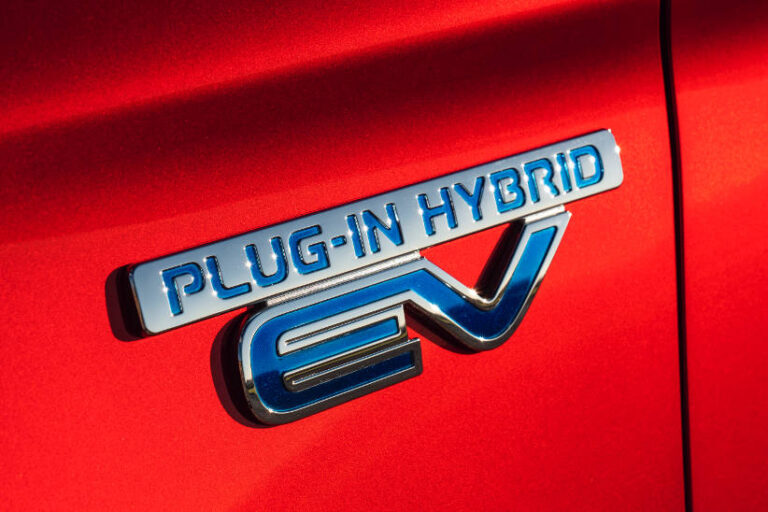– By Paul Oliver –
There were very few good news stories emanating from the December 2020 VFACTS report on new vehicle sales. However, strong Hybrid vehicle sales were an exception!
The various impacts of COVID-19 resulted in an overall reduction in sales of nearly 14% – down from 1,062,867 units in 2019 to 916,968. The first time in 10+ years that Australia has not cracked the magic 1 million mark.
Category Winners
Having analysed the results across the various vehicle categories, it was interesting to see that while overall SUV sales were down, the SUV Light, SUV Small and SUV Upper Large results were all up on 2019.
SUV Light up 3.3% – this category overcame the withdrawal of the Holden Trax which had a 25% market share in 2019, through the introduction of new models: Toyota Yaris Cross, Volkswagen T-Cross and Ford Puma. While the Mazda CX-3 continued its domination of the category with improved sales and a crushing market share of nearly 42%.
For later reference, it should be noted that the Yaris Cross is available in three models – all Hybrid.
SUV Small up 12.3% – while the 2019 category leader the Mitsubishi ASX lost ground it posted a respectable 14.9% market share, while the Hyundai Kona took pole position with 15.2% – nearly doubling its sales from the previous year.
The introduction of the T-Roc got a foothold in this category for Volkswagen, while Toyota CH-R and Subaru XV improved their results. NB: Two out of the three models of CH-R are Hybrid.
SUV Upper Large up 2.7% – strong sales of the dominant Toyota Landcruiser and the less prolific Nissan Patrol jumped as domestic holidays towing a caravan took over in the absence of overseas travel.
While we note that the SUV Medium category was down approximately 10%, the increase in RAV4 sales was huge – 38,537 units versus the 24,260 in the previous year. It now ‘owns’ this category with a 25% market share! Once again, Hybrid variants available on the GX, GXL and Cruiser range led the way to these gains.
Hybrids Sales Almost Double
In the worst new vehicle sales market in 10 + years ……..Hybrid vehicle sales almost doubled – up 97%! Passenger vehicles were up 18.7%, while SUVs were up a staggering 358%!!
So, what does this tell us? Well clearly our love affair with SUVs continues to flourish – as a result, manufacturers are bringing more vehicles to our shores to meet that demand. The Yaris Cross, T-Cross, Puma and T-Roc are just some of the examples.
Then, it’s the popularity of Hybrid vehicle options that stands out. While Toyota again led the way in overall vehicle sales with 22.3% market share, their long-term investment in Hybrid technology appears to be finally paying dividends.
As a result, their stable of Hybrid models continues to grow, it now includes RAV4, Corolla, Yaris, CH-R, Camry, Prius and Prius V.
While the much-anticipated Hybrid Kluger is also due in the first half of this year, which will no doubt be hugely popular.
Fleet Sales
Fleets are becoming a key driver to the growth in Hybrids, with Whole Of Life Cost (WOLC) analysis now demonstrating that enhanced resale values, coupled with improved fuel economy offset the difference in purchase price over available Petrol only engine models.
Additionally, their lower carbon emissions contribute to corporate sustainability and environmental policies.
Their ‘Transition’ Role
Many would argue that we should be jumping straight from combustion engines to Battery Electric Vehicles (BEVs) to reach zero emission targets the world over. However, with a lack of infrastructure and coherent government policy, Australia is so far falling behind in the race to electrification.
Although Electric vehicles experienced a 17% increase in sales, it was off a very low base. This was disappointing when you consider the adoption rates overseas.
While infrastructure seems to be the biggest obstacle, the pricing gap to BEVs is still a major issue for fleets, along with the ‘range anxiety’ we feel which appears to result from our vast country and the long distances we sometimes travel.
This is where Hybrids vehicles are playing an important role in transitioning us to electrification. They allow consumers to ease their way into acceptance of electric vehicle technology.
They provide that ‘stepping stone’ that makes the purchase decision so much more comfortable, while still making an eco-friendly contribution. Hybrid vehicles are paving the way for us all to gradually transition to Battery Electric Vehicles (BEVs) and it seems that some fleets are now realising the benefits.
Paul Oliver is the Director & Principal Consultant of Fleet Advisory.
Paul provides independent expert advice and consulting services relating to fleet and mobility solutions – see www.fleetadvisory.com.au.






